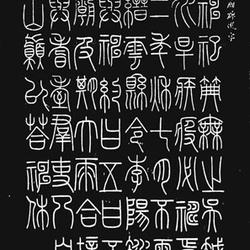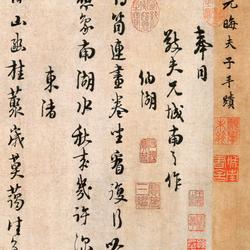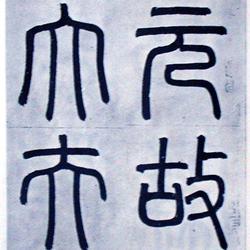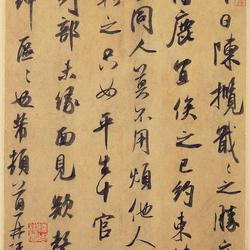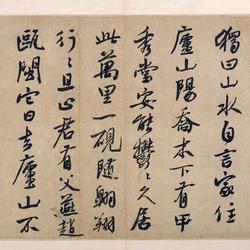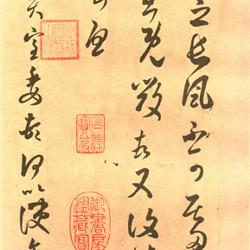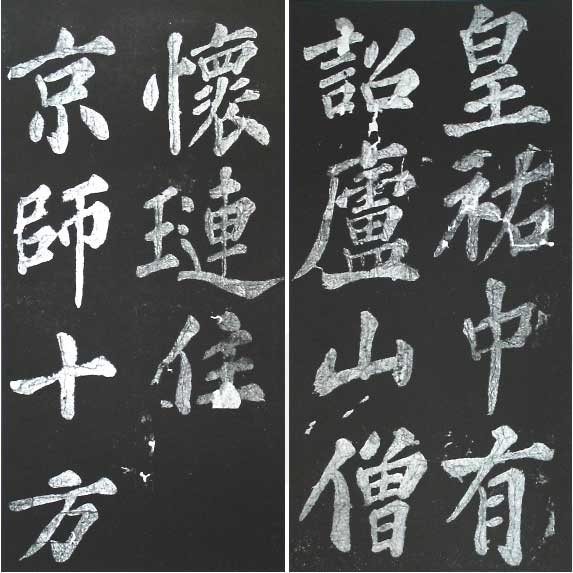
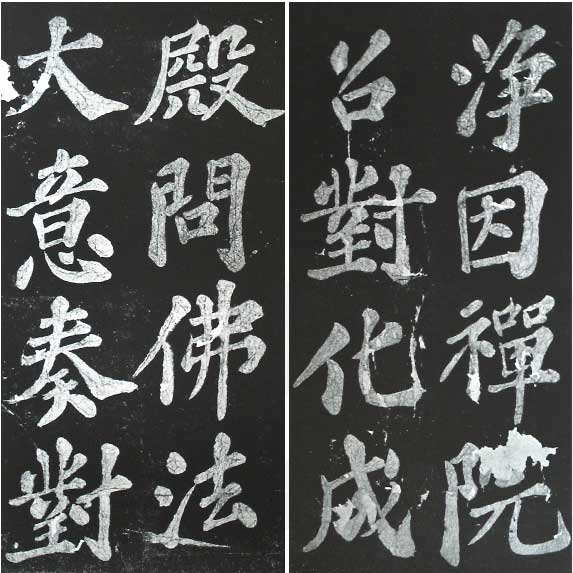
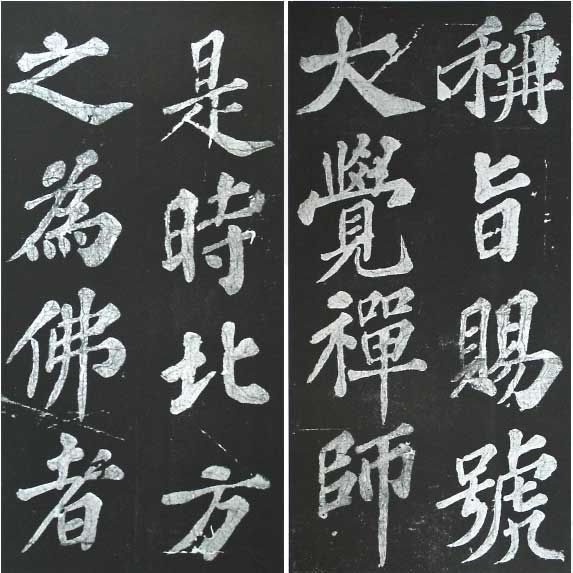
Su Shi's "Chenkui Pavilion Stele" Song rubbings from the inventory of the Imperial Household Agency, Japan
"Chenkui Pavilion Stele", the full name of which is "Chenkui Pavilion Stele of Guangli Temple of King Ashoka in Mingzhou", is an inscription written by Su Shi for the Chenkui Pavilion of Guangli Temple in Asoka Mountain where Huailian collected seventeen poems in praise of the temple given by the emperor. Su Shi Compiled and written. The main book has twenty-two lines and thirty-five characters. It was established in the first month of the sixth year of Song Yuanyou (1091). During the Wanli period of the Ming Dynasty, Cai Xueyi visited Fan Qin and obtained the old rubbings, which were reengraved in Yin County. During the Qianlong period, Qian Daxin saw that the original collection of Fan's Tianyi Pavilion was a Yuanhe edition. The original Song Tuo copy of the original stone has flowed into Japan in the early years.
"Chen Kui Pavilion Stele" is a masterpiece of Su's regular script. A few years after this stele was written, due to the party ban, the stele was damaged, so this Song rubbing is the only one handed down from generation to generation. This is one of the important documents that Enji Benen (Shoichi Kokushi, 1202-1280), the founder of Tofukuji Temple in Kyoto, Japan (one of the five mountains in Kyoto, the headquarters of the Rinzai sect Tofukuji sect), brought back when he returned to Japan.
Appendix: Original text of Su Shi's "Chenkui Pavilion Stele":
In the emperor's favor, Huailian, a monk from Mount Lu, was ordered to live in the Shiwanjingyin Zen Temple in the capital. He summoned him to the Huacheng Hall to ask about the general meaning of the Buddha's Dharma. At that time, those who were Buddhists in the north were all limited to names and appearances, and were limited to cause and effect. Those who believed that the wisdom of the old scholars was superior to anecdotes all despised their words, and slandered them as barbarian slang. Lian only refers to his wonderful words, which are combined with those of Confucius and Lao. His words are true, and his actions are steep and clear. Therefore, for a time, the scholar-bureaucrats liked to travel with him. When he went to take a break, Lian did not wash up, but the outdoor was full. Emperor Renzong, with his heavenly talent, obtained the Tao naturally without being taught it by a teacher. He asked Lian questions and wrote poems to him personally, seven of them out of ten. When he arrived in Hezhong, he wrote a letter begging to return to the old mountain. He said: "The mountain is like a body. Will peace be returned to peace?" No. During the period of peace, if he begged again, he would be very stubborn. Emperor Yingzong could not keep him, so he issued an imperial edict and allowed him to do as he pleased. After Lian crossed the river, he spent a little time in Jinshan and West Lake, and then returned to the Guangli Temple on Asoka Mountain in the Siming Dynasty. The people of the four Ming Dynasties worked together to build a large pavilion and store the poems given to them. They named it Chenkui. At that time, the capital began to build the Baowen Pavilion and ordered a copy of it to be hidden. And I am destined to be a monk. Lian Guishan was twenty-three years old and eighty-three years old. When the minister went out to guard Hangzhou, his disciples came to tell him: "There is no inscription in Chenkui Pavilion. You caught me in Zhaoling and traveled with my teacher for the longest time. You can write it!"
I would like to know the name of the Buddha according to the names of ancient people. He must be named Han Ming and Liang Wu. His disciple Gai often used excuses to paint his image on the wall. The Han Ming Dynasty regarded observation as wisdom, while Liang Wu regarded weakness as benevolence. All are due to the fact that their names are not true, and they are far away from the Buddha. During the forty-two years of Emperor Gongwei Renzong's reign, he did not cultivate monks and nuns extensively, worship monasteries, engage in war, or make personal loans. On the day of ascending to heaven, the world will return to benevolence. This so-called person who has obtained the Buddha's mind is only one person in ancient and modern times. Although Lian teaches people by the law of the world, he is very strict in upholding the law. The emperor was given a dragon brain bowl, and Lian burned it to the envoy, saying: "My method is to use dirty colored clothes and eat with tiles and iron. This bowl is illegal." The envoy returned and praised him for a long time. The inscription says: The majestic benevolent emperor is in harmony with nature. Shenyao's attainment of the Tao cannot be passed down by a teacher. The Taoist people are free and at ease. Zen laws run in parallel and do not hinder each other. I have written about Mu's poems. Only the Buddha and the Buddha know their true nature. To the southeast of Zi'er, there is the King of Mountains and the King of Seas. Come to court at the right time, so as to keep it hidden. (Complete Works of Su Dongpo - Text·Volume 86·Ten Steles)

